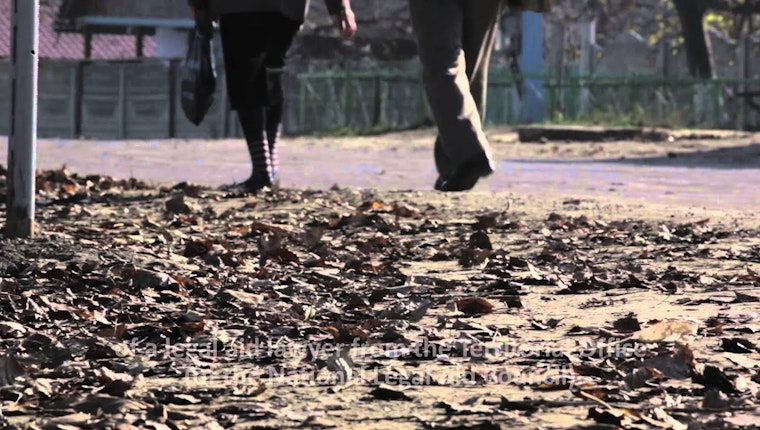Grassroots Justice in Moldova
By Diana Marian

Svetlana Secu didn’t know what to do. Abused by her husband, she needed protection for herself and for her children. She tried the police and then the courts but received conflicting information. She walked away feeling confused and helpless. Then she met Viorica Chirnicinîi.
“If it hadn’t been for her, I don’t know what I would have done,” says Svetlana, who lives in Hâncesti, a town in central Moldova. “I came to her one day crying. It was a Wednesday. I didn’t know what to do anymore. It was impossible for my children and me to live in peace and quiet in our home.”
Viorica, a paralegal working in the village as part of a program supported by the Soros Foundation–Moldova, had answers. She told Svetlana the only solution was to file a complaint for a protection order, which they drafted together.
“I went to court and filed it. And the next day, the protection order was issued,” Svetlana said. “For the three months [my husband] was denied access within 500 meters to me and my household, … I was certain that at night my children and I could go to bed safely and that nobody would beat us or threaten us.”
Viorica is one of 30 paralegals working in rural communities all across Moldova, supplying basic information and skills to help people grapple with daily problems and regain some control of their lives.
Since 2010, when the program began, more than 10,000 people have sought the paralegals’ counsel on everything from work papers to pension benefits. The paralegals provide free legal advice, organize public lectures, and serve as guides to local institutions. A new short film documents the impact of their work.
To bolster the paralegals and expand legal empowerment in the country, Soros Foundation–Moldova has also developed an online tool that allows people to search for solutions to their legal problems on their own. The web site—www.parajurist.md—offers clear information on a whole array of issues, including problems related contracts, property, health, and inheritance.
The underlying goal is a simple one—to help ordinary people secure a measure of justice.
“The people who have money in their pockets know where to solve their problems. They know about judges, prosecutors, and lawyers,” says Evsei Tîltu, another paralegal. “Our work as paralegals is meant for people with small incomes—for those who don’t know where to solve their problems.”
Diana Marian is a project coordinator for legal empowerment with the Soros Foundation-Moldova.